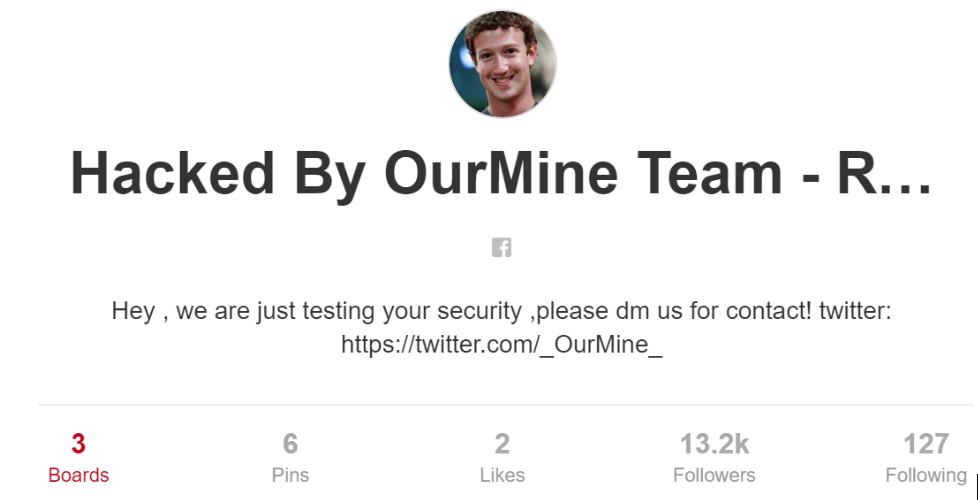What is website security?
The science and process of protecting your website, its information and data integrity from the hands of hackers is referred to as website security. Website security is of universal importance to all. Be it a tiny one-page website or an enterprise spanning several internal pages, website security remains of paramount importance.
Why is website security so important?
Cybercrime is on the rise. There is a higher chance that you will be hacked online than be attacked while talking a walk down the street. When cybercrime hits your personal identity; financial security and even confidentiality will suffer in great amounts.
In fact, a study by Kaspersky has estimated that at least 34% of computers were hacked in 2015.
Even celebrated social profiles like Mark Zuckerberg, Taylor Swift, Kylie Jenner got hacked by unknown sources. The point to note is; there is no guarantee that you or your website is completely secure from the web’s dark attacks.
Facebook is estimated to be targeted at least 600,000 times every single day. Malicious hacking attempts are costing businesses anywhere from $375 Billion to $575 Billion annually. There are other staggering statistics from around the world relating to personal losses, identity theft and information steals which reiterate the pressing need for website security.
The grave losses of ignoring website security
Broadly, the losses that lapse in website security can be classified into three categories:
Identity theft:
The literary meaning of identity theft is: the fraudulent practice of using another person’s name and personal information in order to obtain credit, loans, etc. (Source: Google Dictionary)
The imposter/hacker obtains the credentials of a user like social security number, address, driver’s license, etc. which he uses to create a fake account. The account is then used to transact unauthorized transactions which possibly run the original user into debt, shams or even legal disputes.
Financial loss:
$260 Billion is the amount of online transactions that happens in the US retail industry alone. Other sectors like banking, stock broking and hedge funding will add few more hundreds of Billions to the online finance net.
With such massive amounts of transactions happening online, weakened website security can lead to massive losses that will cause enterprises, businesses, and banks grave financial loss.
Loss of reputation:
The world went berserk when Mark Zuckerberg’s Pinterest profile showed a random twitter account claiming the account to be hacked. Needless to say, the mark had a tough time explaining what really happened. Facebook users even thought of deactivating their accounts since it contained sensitive information which now possibly could fall into the hands of hackers.

Needless to say, the maximum damage website security can cause is to the profile and reputation of the user.
Best practices to secure any website
No matter how fearful the threat of website security is, it is always possible to up your shield and stay protected. Here are some ways you can seal the security of your website air-tight to prevent any possible hacking attempts.
Use a secure web host
The first line of defense for website security begins with selecting a secure web host. A reliable web hosting provider will provide upscale security, on-demand technical support and also security assistance in case of attacks. Further, there are web hosting providers who also provide SSL certificates along with their web hosting services for a definite amount.
Update CMS regularly
Content Management Systems (CMS) like WordPress etc. have built-in security measures and plugins. These plugins have to be updated regularly with security patches which will keep the CMS secure from hacking attempts.
As a matter of fact, from 2017 onwards WordPress is moving towards HTTPS to create a secure web environment where all websites running on the platform. The company itself has announced in its website that the year 2017 will be a turning point in its lifeline where security will receive heightened importance.
Go HTTPS
SSL certificates that offer HTTPS encryption have become vogue across all types of websites. Even personal blog owners and small online stores are using HTTPS encryption to ensure website security. Even Google is advocating
HTTPS delivers majorly on two benefits. Its primary benefit is ensuring security for data exchange that transacts between the web browser and the server. The data is broken down into tiny chunks which cannot be hacked into by any third party. Secondly, HTTPS encryption gives the website a green address bar and padlock symbol which improves customer’s trust and subsequently conversion rates.
Take regular website backups
Every website, despite the level of security and infrastructure setup has the possibility of suffering from downtimes. Website downtimes can hit your profitability real hard; even a complete washout if you happen to be in the eCommerce industry. The key is to take regular offsite backups which can be immediately reached for website restoration. Make it a practice to take periodical (weekly, monthly, quarterly) offsite backups of your website so that your data is safe even if the website goes down.
Repair broken links
Broken links in your website are like doors and windows without the hatches. They can be easily backed into to steal valuables, in this scenario, sensitive user information. Hence, it is imperative to remove all broken links or repair them at the earliest to keep your website architecture strong and healthy at all times.
Conclusion
The importance of website security can never be explained completely in words. However, be informed that the grave losses of ignoring web site security can spell the demise of your business. Right from loss of reputation to financial damages, it can leave your business in a rut that could be impossible to come out from.
However, worry not excessively, as implementing all or at least some of the above website security measures will help your business safe and secure from impending cyber security threats.
Do you know of any more cyber security measure that can keep websites safe from the privy of hackers eyes? Feel free to voice your knowledge.



